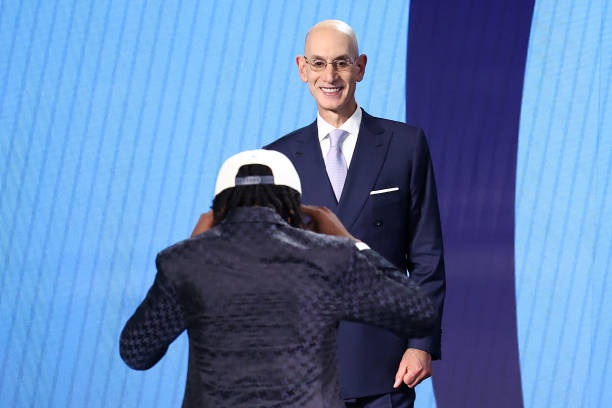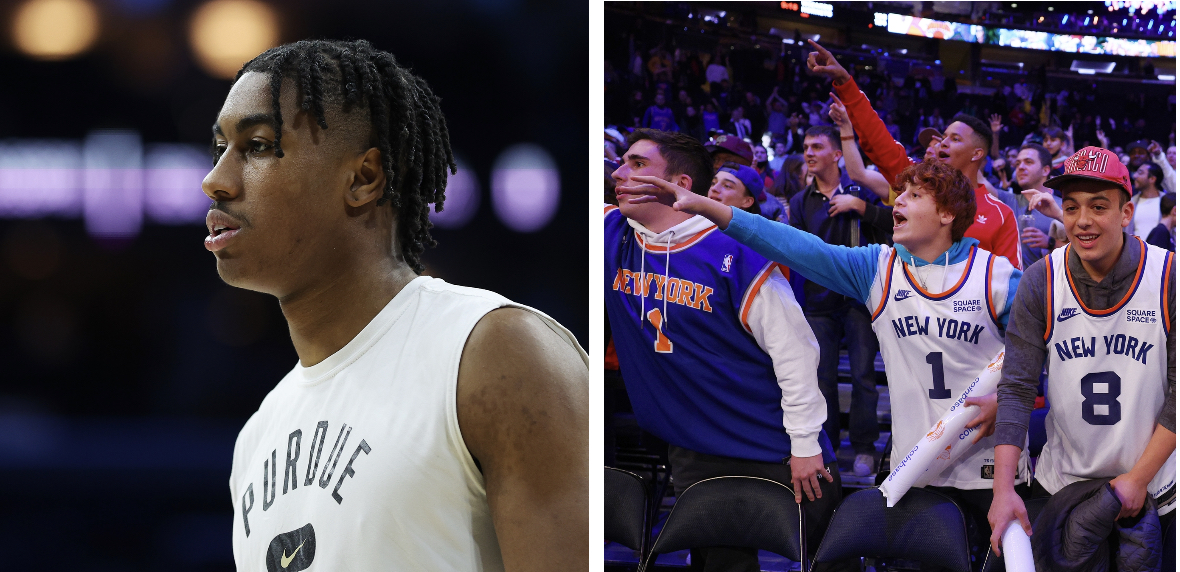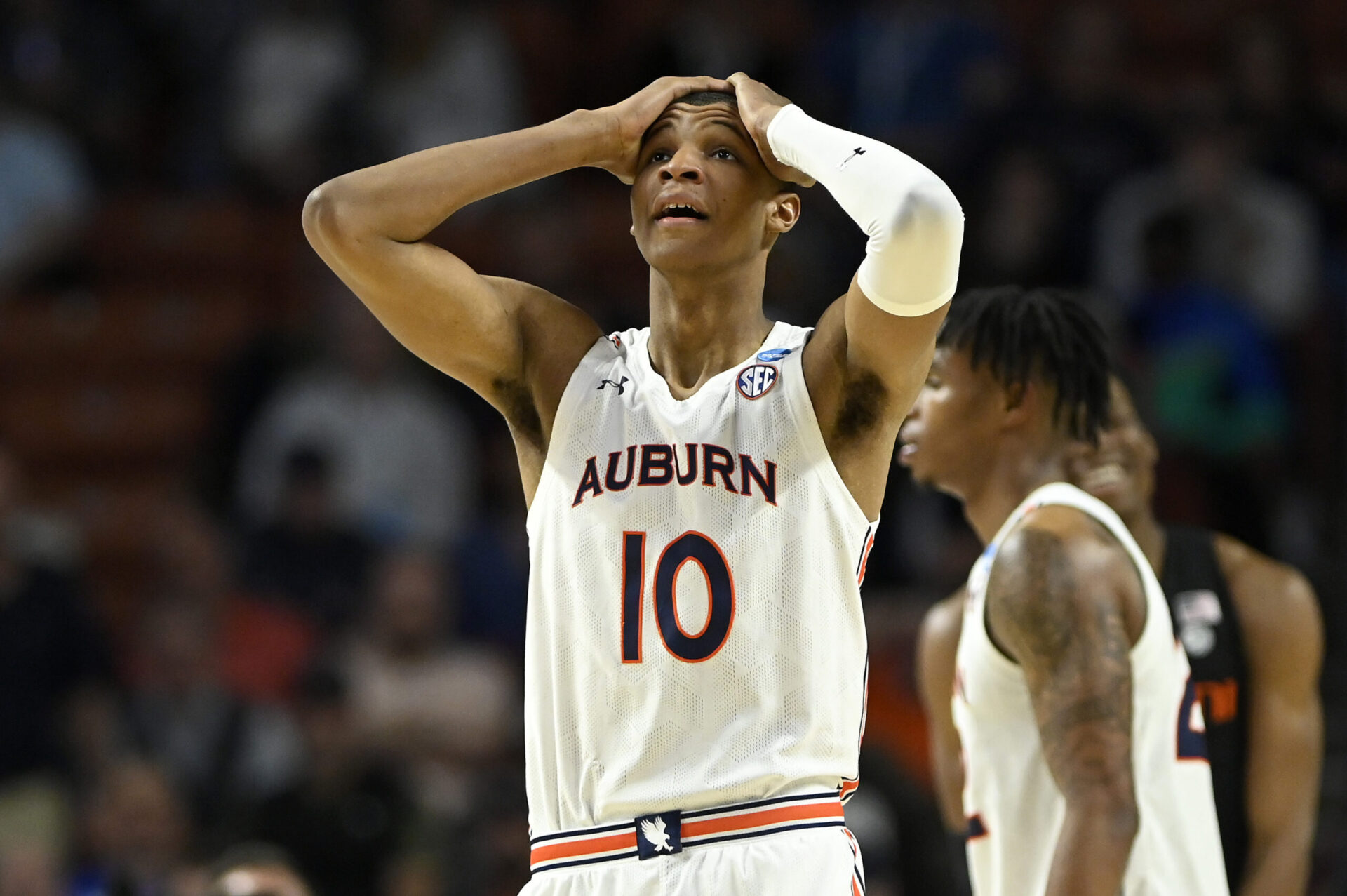So much has transpired since RJ Hampton opened up the flood gates and a trend of elite prep players foregoing college to get paid overseas caught fire. Before the G-League upped its ante for Jalen Green and other elite players who don’t need college to get paid. Before the NCAA said “Eff it” student-athletes can profit off their likeness and other economic opportunities, RJ took his talents to the “Land Down Under,” where projected NBA lottery pick Melo Ball also spent time getting paid, honing his game, growing and passing time until he was age-eligible for the 2020 NBA Draft.
While RJ, met the academic standards to play for any college in the country, he chose the NBL. He secured a lucrative shoe deal after that.
BREAKING: Top-ranked guard RJ Hampton signs 5-year, multi-million dollar signature shoe deal with Li-Ning, in advance of playing overseas & entering 2020 NBA Draft.
“I want to be the face of something global that’s bigger than just the US.”
— @RJHampton14https://t.co/FhCTT2Rg7R pic.twitter.com/7XmfiCZRnc— Nick DePaula (@NickDePaula) July 25, 2019
Hampton’s power move opened up the eyes and ears of a lot of players as to what LaVar Ball was trying to tell and show everyone with his Big Baller Brand and the way he handled his sons’ careers. Ball believes that free enterprise and self-marketing is the key to ending years of NCAA exploitation.
It was the point of no return for the NCAA, NBA, and G-League, who were all forced to adjust or risk losing the top high school players to the NBL.
The kid is still grinding towards lottery pick contention. He recently made headlines for working out with Memphis coach Penny Hardaway and breaking COVID-19 rules. What can I say, the kid is willing to risk it all for his dream. He proved that when he igged college hoops.
Remembering that day.
*************************************************************************
In another example of basketball players empowering themselves, rather than become working slaves under the rigid and often exploitative NCAA policies, RJ Hampton, who was ranked as the No. 5 recruit in ESPN’s Top 100 announced on ESPN’s Get Up show that he won’t be going to college. Instead, the 6-foot-5 baller will join Australia’s NBL as part of the “Next Stars” program.
Hampton, who meets the academic requirements to play at any college in the country kept it a buck when he announced his decision, saying that it was based on the fact that his dream was to play in the NBA and this is the best route for him.
“I just think …my dream has never been to play college basketball. My dream has always been to find the best route to get to the NBA. So I think this was the best route for me… to live like a pro and play with grown men every day and not have to juggle books and basketball and just focus on my main goal.”
RJ Hampton (ranked No. 5 recruit in ESPN Top 100) will forgo college to play professionally in Australia's NBL. pic.twitter.com/xWmh7V5RaF
— Get Up (@GetUpESPN) May 28, 2019
Duke, Memphis, Kansas and Texas Tech were among the schools vying for Hampton’s one-and-done services. The New Zealand Breakers become the beneficiary of the changing basketball landscape and another young black athlete who is helping to break the monopoly the NCAA has had on top tier talent.
Hampton differs from past players such as Brandon Jennings and Emanual Mudiay who were shady students, which hurt their recruiting process, so they decided to skip college to play overseas before going into the NBA.
He kept it real by explaining that he has no intention of going to college for an education. He’s focused on getting the bag in the NBA and under the current circumstances he still can’t go right into the league out of high school yet, so this is the next best option.
Back in March of 2018, the NBL launched a new development program, which would afford some of the top high school players from across the US to bypass college, in order to play in the Australian pro league — and get paid.
The ‘Next Stars’ initiative helps NBA Draft-eligible athletes — hand-picked by an NBL-selected panel of ‘experts’ — get contracted by the league, before being entered into a pool, and allocated to teams.
The players who are brought over will be paid $100,000 in Australian currency, which ends up as $US50,000 net. The promising teenage ballers will also be given an apartment, a car, flights, and individual development training, sources said.
“Unlike other countries where players and agents deal with clubs, the NBL will directly contact the players,” NBL owner and Executive Director, Larry Kestelman, said.
“We will make sure the players get the development they need as part of the program with our clubs, giving them the best chance of success.
“The NBL provides strong visibility back to the US. Our league is closest to the NBA in terms of style of play and game day presentation. We will work to build a program to provide the right access to NBA teams and scouts alike.
“While they are in the NBL we will work with the players to help them develop an acute understanding of the life of a professional basketballer on and off the court and ensure they are equipped to make the transition to their professional careers.”
Hampton follows in the footsteps of Terrance Ferguson who signed with the Adelaide 36ers’ in 2016, before being selected as the No. 21 overall pick in the 2017 NBA Draft by the Oklahoma City Thunder.
“As Terrance Ferguson demonstrated, there are guys coming directly out of high school who have NBA aspirations and are good enough to be drafted,” NBL CEO, Jeremy Loeliger, said.
In addition to the pro level competition, the program will pay players more than they would get if they were to play in an NBA G-League season. RJ Hampton took less money than he would have made in China or Europe, but the NBL provides a shorter, less strenuous season than clubs in Europe offer.
Opportunities and loopholes like this will eventually lead to the NBA eliminating the one-and-done college rule. It could happen as early as 2022. Two days after Zion Williamson’s Nike sneaker exploded, the NBA submitted to the National Basketball Players Association a formal proposal that will lower the draft-eligible age to 18 from 19. The issue has to be collectively bargained and agreed upon by both the NBA and NBPA.



